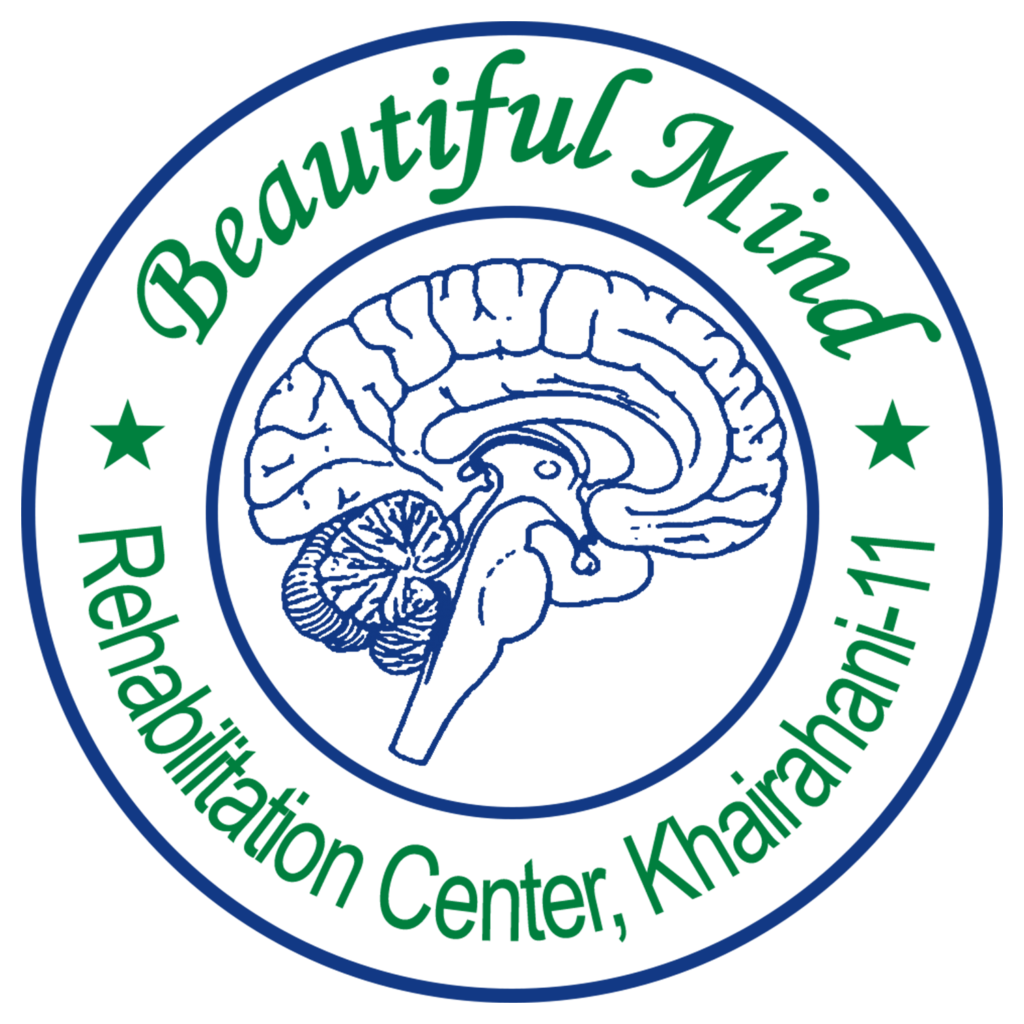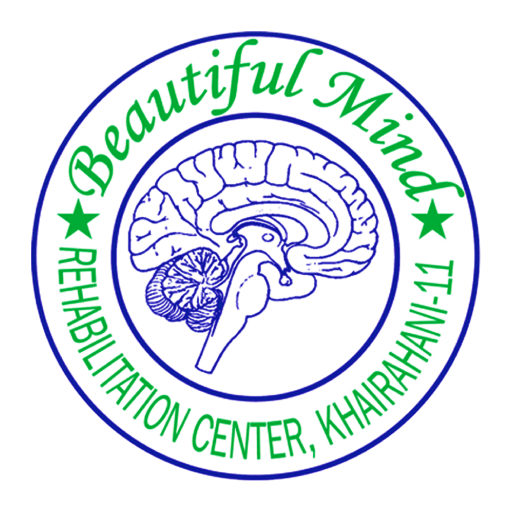How Ketamine Therapy is Changing Mental Health Care in Nepal
By Beautiful Mind Institute of Psychiatry
Introduction: A New Era in Mental Health Treatment | How Ketamine Therapy is Changing Mental Health Care in Nepal
How Ketamine Therapy is Changing Mental Health Care in Nepal: For many years, mental health care in Nepal was limited by stigma, scarce resources, and a narrow range of treatment options. Patients battling severe depression, post-traumatic stress disorder (PTSD), or chronic anxiety often faced a frustrating reality—traditional medications and therapies did not always work.
But now, a breakthrough is making its way into the heart of mental healthcare: Ketamine therapy. Globally recognized for its rapid and profound effects on mood disorders, ketamine has the potential to transform lives—especially for those who have not found relief in conventional treatments.
At the Beautiful Mind Institute of Psychiatry, we are proud to be among the pioneers in bringing safe, ethical, and scientifically backed ketamine therapy to Nepal.

Why Traditional Treatments Sometimes Fall Short
Antidepressants like SSRIs and SNRIs have been the backbone of psychiatric care for decades. While they help millions, they are not a universal solution. Common challenges include:
- Delayed onset of benefits: Antidepressants can take 4–6 weeks before showing improvements.
- Partial or no response: About 30% of patients do not respond to standard antidepressants.
- Side effects: Nausea, weight gain, sleep disturbances, and emotional blunting can deter continued use.
- Persistent symptoms: Some individuals still experience suicidal thoughts or emotional numbness despite ongoing medication.
For those facing treatment-resistant depression or PTSD, the need for an alternative is urgent—and ketamine therapy has stepped in to fill that gap.
What is Ketamine Therapy?
Ketamine is a medication originally used for anesthesia and pain management. In lower, carefully controlled doses, it has shown remarkable antidepressant effects. Unlike typical antidepressants, which primarily target serotonin or norepinephrine, ketamine acts on the glutamate system—specifically the NMDA receptors in the brain.
This unique mechanism promotes:
- Rapid formation of new neural connections
- Improved mood within hours or days
- Reduction of suicidal ideation
Because of its speed and effectiveness, ketamine has been called the most significant breakthrough in depression treatment in decades.

How Ketamine Works in the Brain
When administered under medical supervision, ketamine triggers a surge of glutamate—a neurotransmitter critical for brain function. This surge activates AMPA receptors, which in turn stimulate the growth of new synapses (connections between brain cells).
This process—known as synaptogenesis—helps the brain “rewire” itself, allowing patients to break free from rigid patterns of negative thinking. Essentially, ketamine helps the brain become more adaptable, responsive, and open to change.
Conditions Ketamine Therapy Can Treat
At Beautiful Mind Institute of Psychiatry, we provide ketamine therapy for:
- Treatment-Resistant Depression – For individuals who have not responded to multiple antidepressants.
- Post-Traumatic Stress Disorder (PTSD) – Reduces intrusive thoughts, hyperarousal, and emotional distress.
- Severe Anxiety Disorders – Helps calm the nervous system and reduce excessive worry.
- Bipolar Depression – Used cautiously to manage depressive episodes without triggering mania.
- Chronic Pain with Coexisting Depression – Offers relief when traditional painkillers and antidepressants fail.
The Ketamine Experience at Beautiful Mind Institute of Psychiatry
We have designed our ketamine therapy program to be safe, patient-centered, and holistic. Here’s what patients can expect:
- Comprehensive Assessment
Every patient undergoes a full psychiatric evaluation, medical history review, and physical examination to determine eligibility. - Personalized Treatment Plan
Dosage, frequency, and duration are customized to each individual’s needs. - Comfortable and Safe Environment
Sessions are conducted in a calm, monitored space with continuous observation by trained medical staff. - Integration with Psychotherapy
Ketamine sessions are often paired with talk therapy to help patients process emotions and build healthy coping strategies. - Ongoing Support
Post-treatment check-ins ensure long-term progress and adjustment.

Why Ketamine is a Game-Changer for Mental Health Care in Nepal
1. Speed of Relief
Unlike conventional antidepressants, ketamine often produces noticeable improvements within 24–48 hours.
2. Hope for Treatment-Resistant Cases
For those who have lost faith in recovery, ketamine offers a new path forward.
3. Suicide Prevention
Its rapid ability to reduce suicidal thoughts can be life-saving in crisis situations.
4. Encouraging Neuroplasticity
Ketamine promotes brain flexibility, making it easier for patients to adapt to healthier thought patterns.
5. Breaking Stigma
Introducing advanced treatments normalizes the idea that mental health deserves the same innovation and investment as physical health.
Myths and Facts About Ketamine Therapy
Myth: Ketamine is addictive when used for mental health.
Fact: Under medical supervision, ketamine is administered at controlled doses and schedules, with minimal risk of dependence.
Myth: It’s just a “happy pill” with temporary effects.
Fact: Ketamine’s impact goes beyond mood elevation—it rewires brain pathways, enabling lasting change when paired with therapy.
Myth: It’s unsafe.
Fact: When administered in a clinical setting by trained professionals, ketamine therapy is safe and well-tolerated.
Safety Measures at Beautiful Mind Institute of Psychiatry
- Full medical screening before therapy
- Continuous monitoring of blood pressure, oxygen levels, and heart rate during sessions
- Strict dosing protocols
- Immediate availability of emergency medical support
- Post-session rest and recovery period before discharge
Integrating Ketamine into a Holistic Treatment Plan
We believe ketamine works best when it’s part of a comprehensive care model. At our institute, patients receiving ketamine therapy also have access to:
- Psychotherapy and counseling
- Occupational therapy to rebuild daily functioning
- Nutritional guidance for brain health
- Mindfulness and relaxation techniques to sustain recovery
- Support groups to reduce isolation and foster community
The Future of Ketamine Therapy in Nepal
We envision ketamine therapy becoming an accessible option in major cities and, eventually, rural areas. As awareness grows, more people will recognize that seeking help is a sign of strength, not weakness.
At Beautiful Mind Institute of Psychiatry, we are committed to:
- Training more mental health professionals in ketamine protocols
- Expanding public education to reduce fear and misinformation
- Making treatments financially and geographically accessible
Patient Stories: Hope Restored
While respecting privacy, we have witnessed remarkable transformations:
- Case 1: A young adult with years of suicidal depression found relief after two sessions, regaining interest in life.
- Case 2: A trauma survivor suffering from severe PTSD finally slept peacefully after her first treatment.
- Case 3: A professional battling burnout and anxiety returned to work with renewed energy after completing the therapy cycle.
Conclusion: A New Chapter for Mental Health in Nepal
Ketamine therapy represents more than a medical breakthrough—it’s a symbol of hope. For the first time, many patients in Nepal have an option that can deliver rapid relief, rebuild resilience, and restore joy.
At Beautiful Mind Institute of Psychiatry, we are leading this change with compassion, expertise, and a commitment to holistic healing. By combining innovative treatments with human-centered care, we are helping to shape a future where mental wellness is within everyone’s reach.
FAQs – Ketamine Therapy in Nepal
1. What is Ketamine Therapy?
Ketamine Therapy is a medical treatment that uses low doses of ketamine, administered under professional supervision, to treat depression, PTSD, anxiety, and certain chronic pain conditions. It works differently from traditional antidepressants by rapidly enhancing brain connectivity and mood regulation.
2. Is Ketamine Therapy available in Nepal?
Yes. Beautiful Mind Institute of Psychiatry in Nepal offers professionally supervised ketamine treatment, making it accessible to individuals struggling with treatment-resistant mental health conditions.
3. What conditions can Ketamine Therapy treat?
It is most commonly used for treatment-resistant depression, post-traumatic stress disorder (PTSD), severe anxiety, bipolar depression, and some forms of chronic pain.
4. How does Ketamine work for depression?
Ketamine acts on NMDA receptors in the brain, stimulating glutamate release and enhancing synaptic connections, which helps improve mood and reduce symptoms within hours or days.
5. How quickly can I expect results?
Many patients report improvements in mood, clarity, and energy within hours or days after treatment, although a full treatment plan usually involves multiple sessions.
6. Is Ketamine Therapy safe?
When administered in a medical setting under strict monitoring, ketamine therapy is considered safe. Possible side effects are mild and temporary.
7. What are the side effects of Ketamine Therapy?
Mild side effects can include dizziness, dissociation, nausea, or mild changes in perception, usually resolving shortly after treatment.
8. Is Ketamine Therapy addictive?
At therapeutic doses in a medical setting, the risk of addiction is extremely low. It is never self-administered and is closely monitored.
9. Who should consider Ketamine Therapy?
It’s recommended for individuals who have not responded well to traditional treatments like antidepressants or psychotherapy.
10. How long does each ketamine session last?
A typical session lasts about 40–60 minutes, followed by a short recovery period.
11. Do I need to be admitted to the hospital for Ketamine Therapy?
No, ketamine therapy is often done on an outpatient basis, allowing you to return home the same day.
12. How many sessions are required?
A standard course involves 6–8 sessions over 2–4 weeks, followed by maintenance sessions if needed.
13. Will I still need therapy or medication?
Ketamine therapy often works best when combined with psychotherapy and other supportive treatments.
14. Is Ketamine Therapy approved for use in Nepal?
Yes, ketamine is an approved medication in Nepal and is used in mental health care under licensed medical supervision.
15. What makes Ketamine Therapy different from antidepressants?
Traditional antidepressants can take weeks to work, while ketamine often shows results in hours or days.
16. Can Ketamine Therapy help with suicidal thoughts?
Yes, studies show ketamine can rapidly reduce suicidal ideation, making it a valuable option in crisis situations.
17. Is it covered by insurance in Nepal?
Currently, most insurance providers in Nepal may not cover ketamine therapy, but policies are changing.
18. What should I do before starting Ketamine Therapy?
You’ll undergo a thorough assessment, including mental health evaluation and medical history review.
19. Can I drive after a session?
No. You should arrange for someone to drive you home after treatment due to temporary effects on coordination.
20. How do I prepare for my first session?
Avoid heavy meals before treatment, wear comfortable clothing, and follow your doctor’s instructions.
21. Will I be unconscious during the treatment?
No. Ketamine therapy is done at sub-anesthetic doses, so you remain conscious but may feel relaxed or dissociated.
22. How long do the effects last?
Improvements can last days to weeks after a session, with maintenance sessions extending the benefits.
23. Can Ketamine Therapy replace antidepressants completely?
In some cases, yes, but many patients continue a combination of treatments for best results.
24. Is there an age limit for Ketamine Therapy?
It’s typically offered to adults, but in special cases, it may be considered for younger patients under expert care.
25. How is ketamine administered?
It can be given through intravenous (IV) infusion, intramuscular injection, or nasal spray under medical supervision.
26. Is there a risk of hallucinations?
Some patients may experience mild, short-lived perceptual changes, which usually fade within minutes.
27. How much does Ketamine Therapy cost in Nepal?
Costs vary depending on the number of sessions and treatment plan. Your doctor can provide a personalized estimate.
28. Can Ketamine Therapy be combined with other holistic treatments?
Yes. At Beautiful Mind Institute, it’s often integrated with mindfulness, therapy, and lifestyle interventions.
29. Is ketamine legal in Nepal?
Yes, it’s a legal prescription medication used in medical settings for anesthesia and mental health treatment.
30. Can pregnant women undergo Ketamine Therapy?
Ketamine therapy is generally not recommended during pregnancy unless absolutely necessary.
31. Will I feel different right after the session?
Many patients feel lighter, calmer, and more optimistic within hours, but results vary.
32. Is it normal to cry or feel emotional during treatment?
Yes, ketamine can sometimes release suppressed emotions, which is a normal and healthy part of the process.
33. Do I have to stop my current medications?
Not necessarily, but your doctor will review your prescriptions to ensure safety.
34. Can ketamine help with anxiety disorders?
Yes, research suggests ketamine can significantly reduce symptoms of severe anxiety.
35. Why choose Beautiful Mind Institute for Ketamine Therapy?
We combine medical expertise, compassionate care, and holistic support to ensure the safest and most effective ketamine treatment in Nepal.
📍 Visit Us: Khaireni-11, Gaidaha, Parsa, Chitwan, Nepal
📞 Call Us:
+977-98550945843 (Hira Ale Magar)
+977-9855094582 (Ansuda Poudel)
+977-9855094584 (Kamal Sharma Bhusal)
🌐 Website: https://beautifulmind.com.np

















